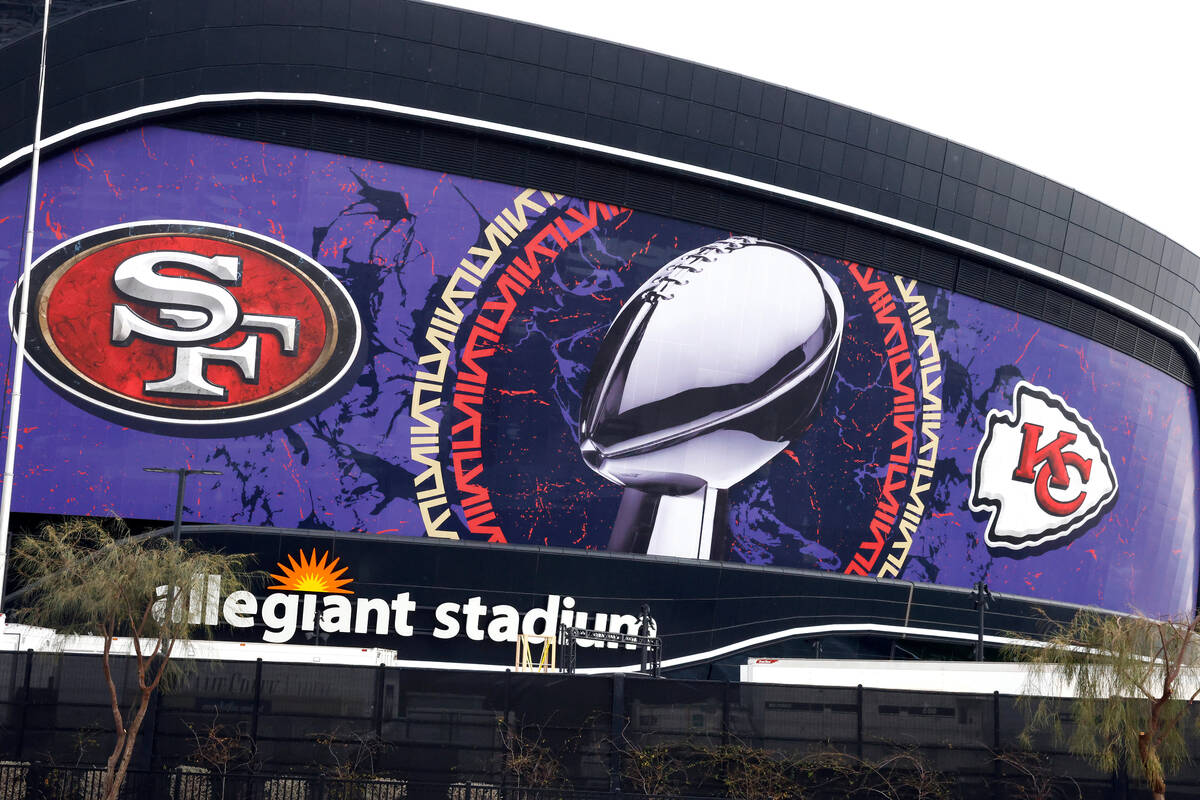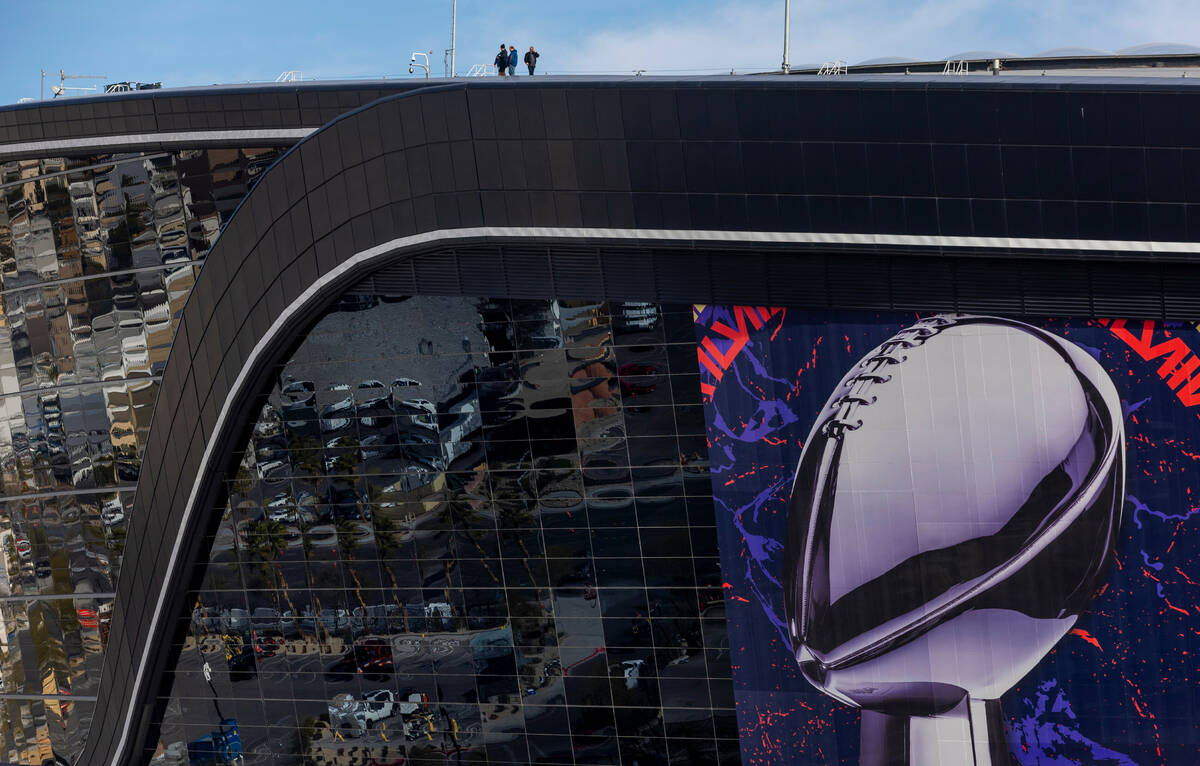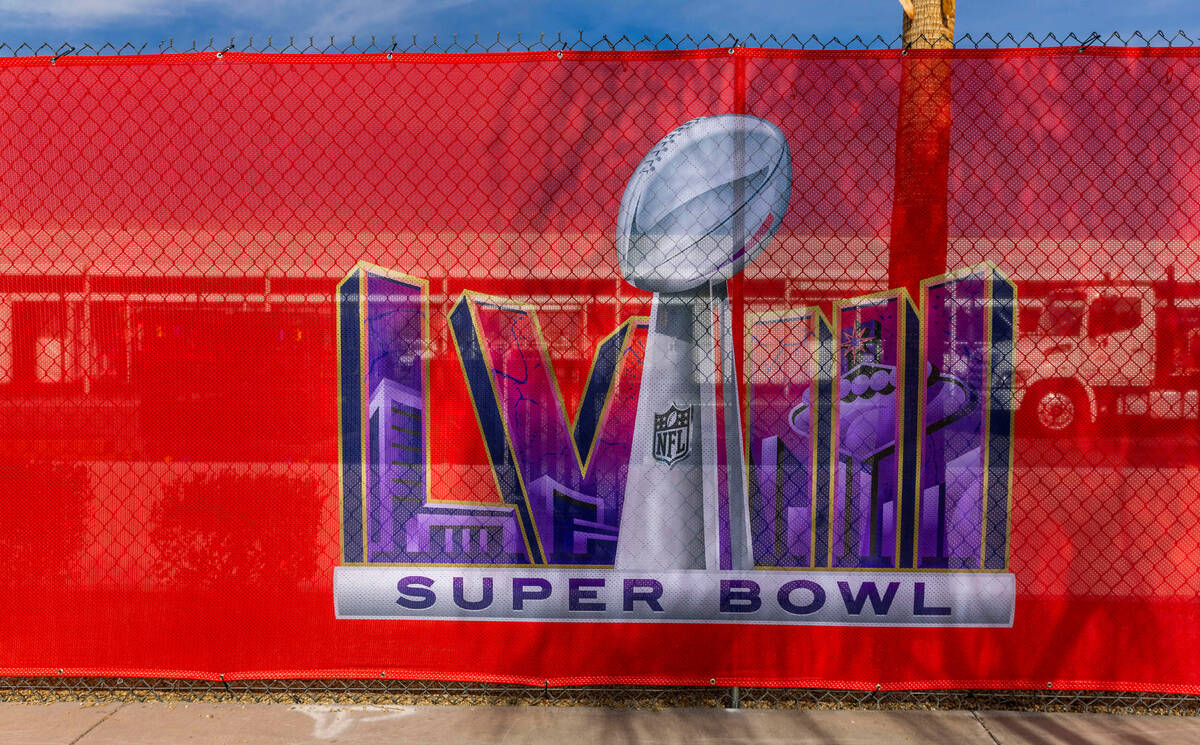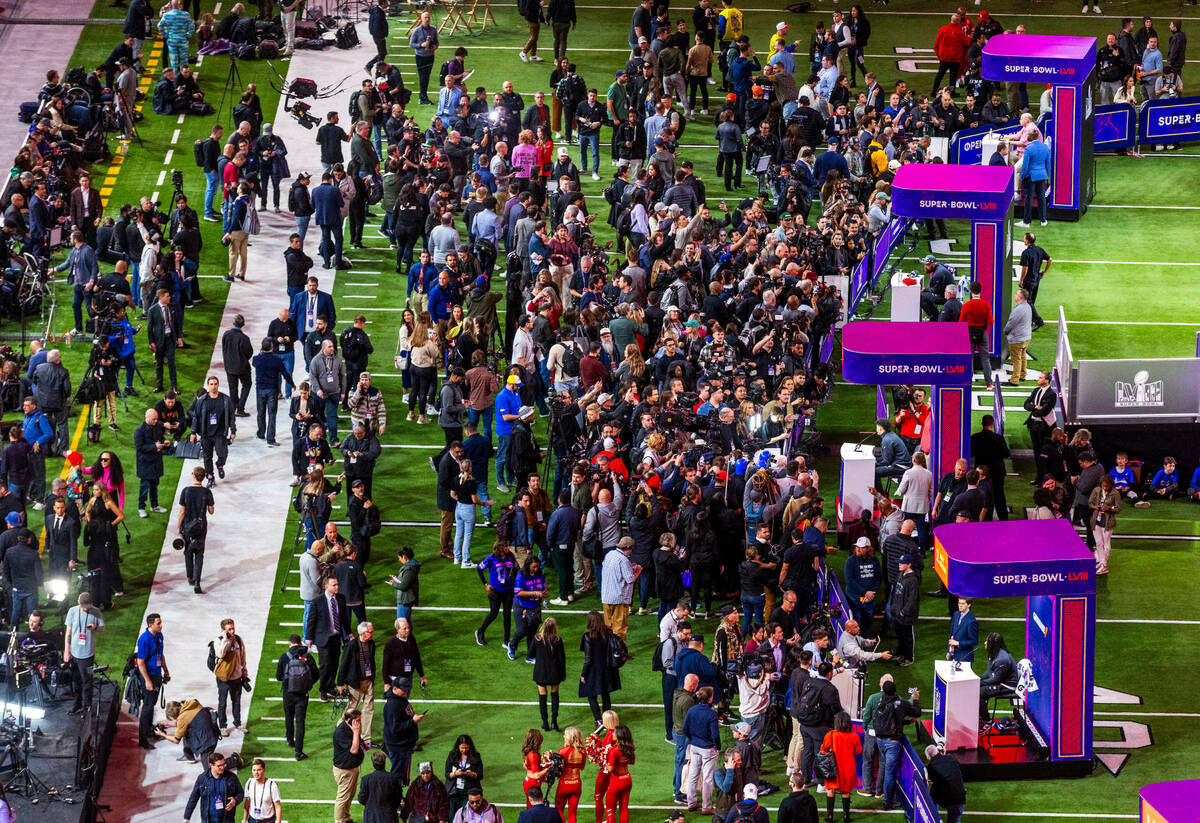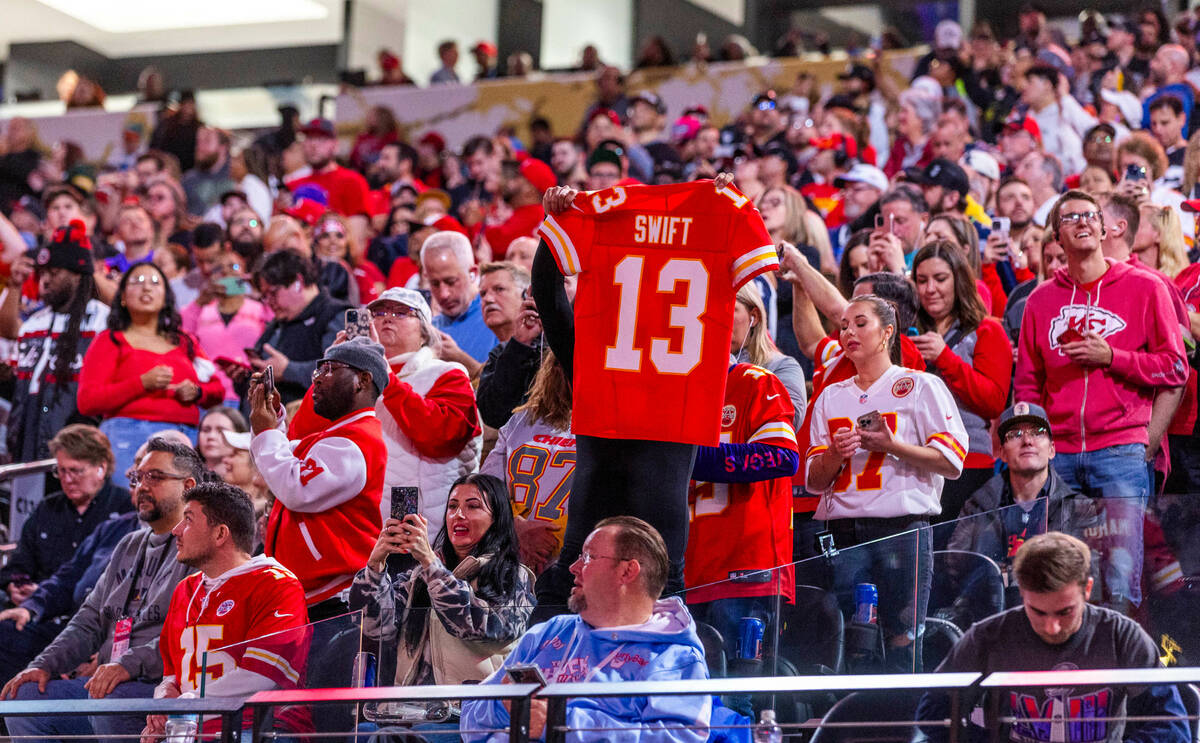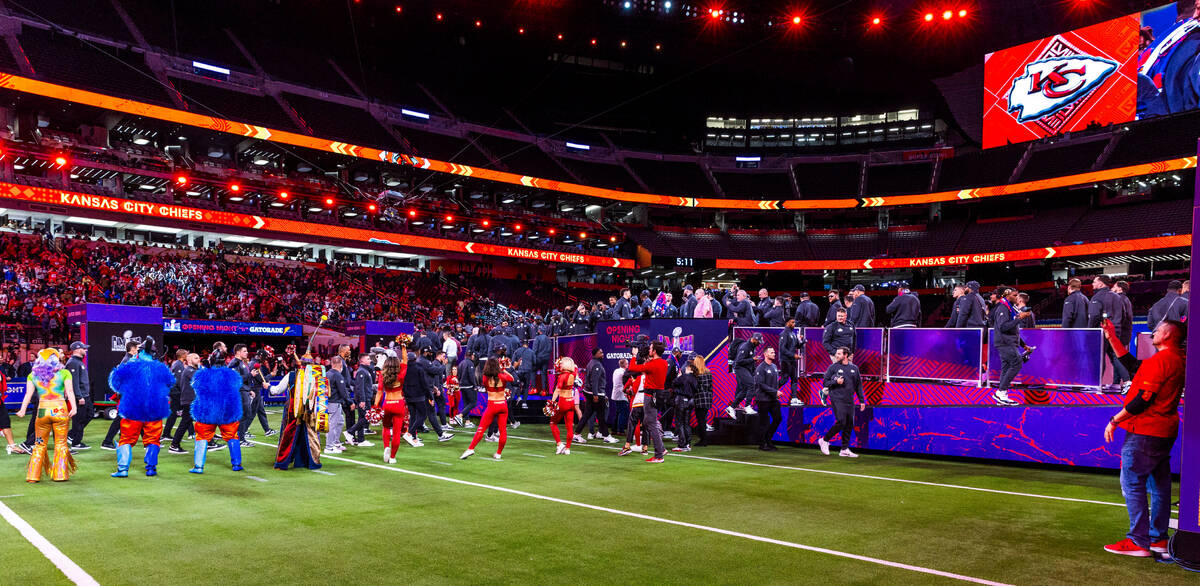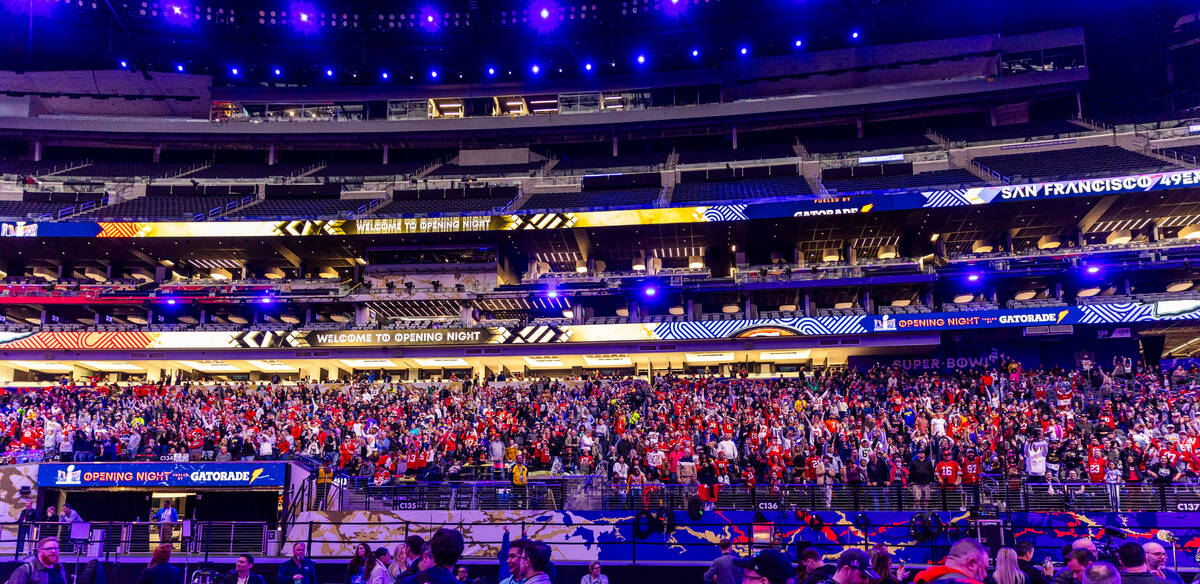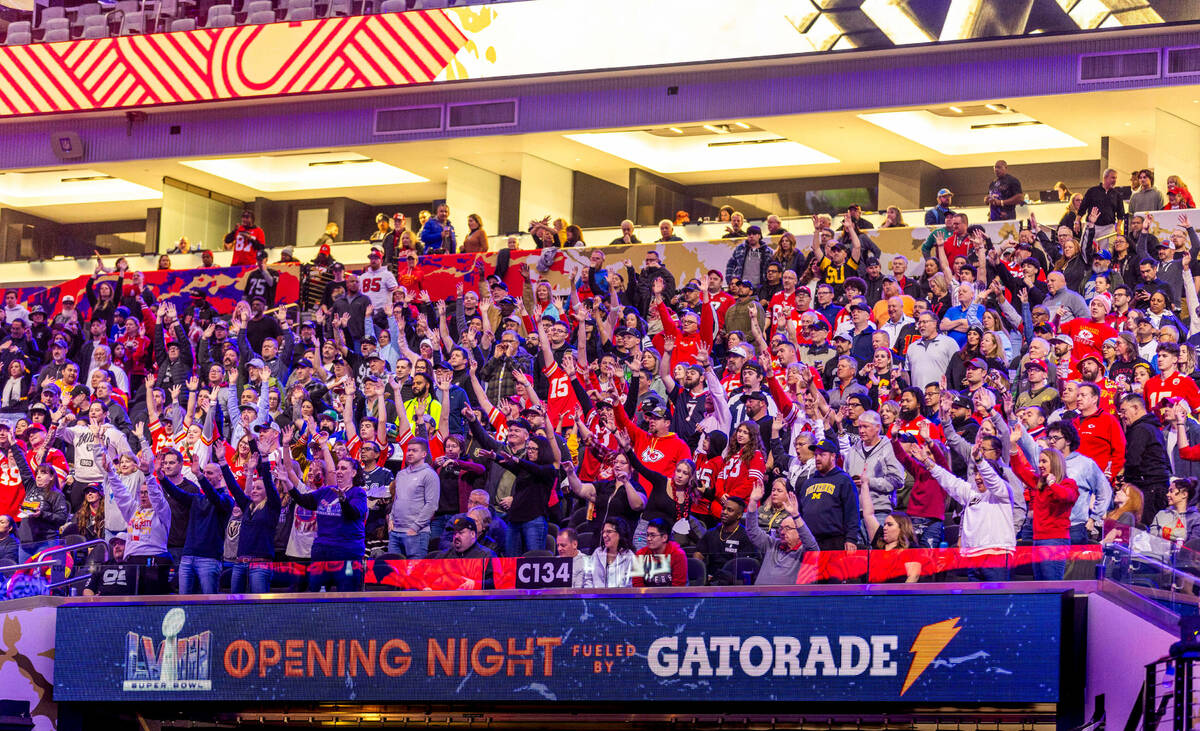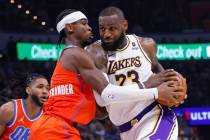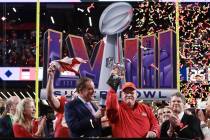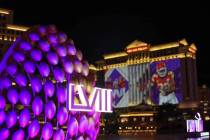Against all odds, Las Vegas finally lands a Super Bowl
Peter O’Reilly is an NFL executive vice president who has been with the league since 2005. He has seen his share of Super Bowls and then some.
He knows a lot about creating lifelong memories for different cities.
He’s also intimately involved with bringing Super Bowl 58 — which matches the Kansas City Chiefs against the San Francisco 49ers — to Allegiant Stadium on Sunday.
“Obviously, there has always been the element of (major events in Las Vegas), but now it’s on a different scale,” O’Reilly said. “In one respect, it makes it that much more natural the Super Bowl would come. On the other, it adds to the confidence we have in our partners in Las Vegas to put on a major event like the Super Bowl and the complexities of it.
“To make sure we do it at a really high level, and it delivers to fans coming into Las Vegas from around the world and those in the local and regional communities.”
There was a day when the idea of a Super Bowl and Las Vegas mixing as one seemed as far-fetched as Jerry Jones not having a say in all things Dallas Cowboys.
There was a line drawn in the proverbial sand when it came to sports gaming and the NFL.
But such differences have been relaxed in the past several years. O’Reilly believes this is the time. The perfect moment.
Different times
It was June 2015 when a fantasy football convention set to be hosted in Las Vegas by Cowboys quarterback Tony Romo was canceled. The NFL had stood behind its policy that “players and NFL personnel may not participate in promotional activities or other appearances in connection with events that are held at or sponsored by casinos.”
Now, a Super Bowl will be played at Allegiant Stadium.
How things have changed.
For years, the league championed an anti-gambling stance when it understood a profit margin was directly linked to those who wager on games and play fantasy football. Gambling, as much as anything else, is responsible for the league’s global popularity. Fantasy football has brought millions of eyeballs to the game that might otherwise glance elsewhere to be entertained.
But there has been a seismic tilt for an NFL that steered clear of Southern Nevada and sports gaming for decades. Which is one reason Allegiant Stadium exists and we now await Sunday’s game.
Funny. We now have the Las Vegas Raiders and the league’s long-standing opposition to gambling seemingly changed with the wider movement of new laws. The Supreme Court unblocked states from offering sports betting, and the NFL opened its eyes.
It also helped that the state contributed $750 million toward the raising of Allegiant Stadium. Helped a whole lot.
“There was a time when it just wasn’t ‘no,’ but ‘heck no,’” said Steve Hill, CEO and president of the Las Vegas Convention and Visitors Authority. “That skepticism that things could be as they are now wasn’t just from me. But we’ve built a great and mutually beneficial relationship with the NFL. I think the Raiders and NFL being here has been great for Las Vegas.
“I also think it has been great for the NFL.”
The NFL draft. The Pro Bowl. And now the Super Bowl. Las Vegas will have hosted them all. It’s a historical attitude change by the league.
“The Pro Bowls and draft weren’t on the scale of a Super Bowl, but those were significant events that allowed us to understand each other and create a great partnership,” O’Reilly said. “As we count down to the Super Bowl, it really is an (opportunity) to do something special together on the world stage.”
Changing things
Jay Kornegay, the executive vice president of race and sportsbook operations at the Westgate SuperBook, was always on the side that it would never happen. That the NFL would never put a team in Las Vegas. That the town would never host a Super Bowl.
He wasn’t the only one.
It was in 2004 when Kornegay met in Indianapolis with representatives of all major sports leagues, the NCAA and FBI.
He told them that everyone should be on the same page, that the sportsbooks wanted exactly what everybody else did, which was for games to be fair. That if sports betting was properly regulated and policed, everything would be OK.
He left having convinced few.
“I don’t think they were educated in space,” Kornegay said. “Once they became educated and understood it and learned how it worked and how regulated and under control things were, it was an eye-opener for them.”
All true. Education matters. Research matters. Taking time to understand and learn about a specific subject before forming an opinion matters.
It was May 2018 when the Supreme Court struck down the Professional and Amateur Sports Protection Act, more commonly known as PASPA, which then gave states the go-ahead to legalize betting on sports.
“I think everyone did a 180-degree turn on things when that happened,” Kornegay said. “Today everything is great. We’re all in this together. The relationship couldn’t be better. I wish it would have happened sooner, but better late than never.
“There’s no doubt sports betting, but the whole town in general, has benefited from the Raiders and Allegiant Stadium being on the Strip. Our relationship couldn’t be better with the Raiders and the league itself.”
Think about it: In March 2017, owners voted 31-1 in favor of allowing relocation for the Raiders from Oakland, California, to Las Vegas. Perhaps more amazing were topics of discussion that arose before the official announcement.
Several sources at the time confirmed that gambling was barely mentioned — a few said not at all — and that the one thorn in the side of owners thought to be too big for Las Vegas to land a franchise was no longer visible.
“The sensitivity toward (gambling) and the integrity of the game is still there, but Las Vegas in no way compromises that,” Jones, the Cowboys owner, said then. “Las Vegas has evolved. It’s not your father’s Las Vegas. We’re very confident because of its (progressiveness) toward gambling. Gaming in Las Vegas was not a deterrent at all to this decision.”
Said commissioner Roger Goodell at the league’s owners’ meetings in December: “A lot has changed. I think we’re now at 38 states now where it’s legalized. Las Vegas is not alone. From our standpoint, we’re adapting to what the environment is. It has its benefits — greater fan engagement, a lot of our fans like to bet — but the downside is protecting the integrity of the game.
“I think as far as where the Super Bowl is, I was out there last week and have tremendous admiration for Las Vegas and the way that city has changed. It is such an entertainment town. It’s a different city than it was 10 years ago, 15 years ago, 20 years ago. It has become a multidimensional city and certainly a sports town. I think they’re going to do an extraordinary job, and I’m completely comfortable other than the normal anxiety I have before any Super Bowl in getting it right.”
A unique energy
O’Reilly looks at Las Vegas now and sees a major league professional sports town, an evolution that might have begun with the Golden Knights but took a huge leap forward when Raiders owner Mark Davis relocated the franchise. The NFL is that big a deal.
“There’s just a unique energy to Las Vegas,” O’Reilly said. “You can feel the buzz when you’re in Las Vegas and the conversations I have when I’m not there about this Super Bowl. We know our Super Bowl buzz score is up 40 percent over a four-year average, so there’s just something special about the energy and excitement of Las Vegas.”
It’s true the town is crazy and packed for every Super Bowl weekend, but nobody can predict how electric things might become with the game in Las Vegas.
“It will be well beyond when the game isn’t here in terms of energy and events and experiences in the community,” O’Reilly said. “People lose sight of how much is going on during Super Bowl week that is accessible in the community and for those who live in Las Vegas.”
He believes this is the time. The perfect moment.
Las Vegas will host Super Bowl 58 on Sunday at Allegiant Stadium.
Who would have thought?
Contact Ed Graney at egraney@reviewjournal.com. Follow @edgraney on X.



